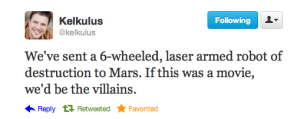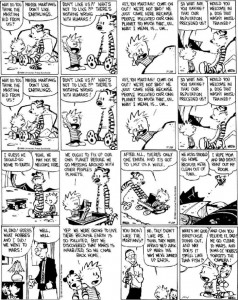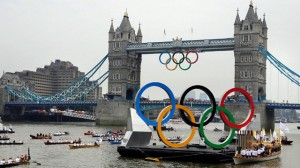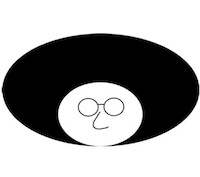
“Atreyuuuuuuu”
Ok, the title is kind of a cheap shot, so let me summarize what follows: party nominees can be a bit like blind salamanders. I can’t promise that that sentence will make any more sense at the end of this essay, but here goes.
The Olm is a blind cave salamander that lives in Slovenia and Croatia; the cool part of the linked Discover article is that it does seem to have a possible lifespan of about 100 years. What’s interesting about the olm for the sake of this discussion is that its blindness is a secondary characteristic, what evolutionary biologists call a “derived trait.” The ancestors of the olm, just like the ancestors of other blind cave species (blind cave tetras, etc.) all had sight; the vision was lost later as an evolutionary development.
Loss of eyesight is believed to have occurred due to lack of advantage in keeping the very-complex mechanisms that allow sight maintained over generations; cave salamanders that had good sight had no advantage over cave salamanders that had terrible vision, so over time the maintenance of a high level of the trait was unnecessary. If you have a hard time understanding that, I’ll put it this way: I have worn thick glasses since I was 10 years old. If I had such terrible vision as a child 5,000 years ago, I probably would not have amounted to much except lunch for a predator. As I am lucky enough to have been born in a developed country in the late 20th century, to parents that had a vision plan as part of their health insurance coverage, I can live, work, and eventually marry (two years ago today!) despite my awful eyesight. If my children have terrible eyesight inherited through me, it will be because I (presumably) have other traits that outweigh the trait of bad vision, which is no longer as big of a handicap as it would have been 5K years ago. Think of cave fish and other blind cave animals as the subterranean equivalent of thousands of years of Mark-breeding.
That is the weirdest sentence I have ever typed.
Anyway, in some conditions the loss of eyesight can be non-detrimental, as in the case of me. In the case of the blind cave animals, it can be adaptive, as it can allow animals to select mates based on other, more cave-friendly traits. I’ll provide one last analogy, this time from baseball’s designated hitter.
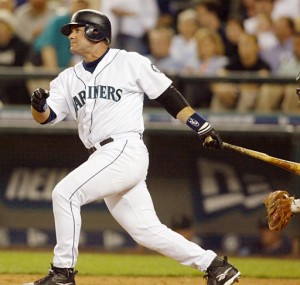
Edgar Martinez belongs in the Hall of Fame as much as a blind salamander
In the National League of U.S. baseball, every player in the lineup bats (offense) and every player in the lineup plays the field (defense). Managers have to strike a balance by picking the lineup with the right mix of offense and defense. Every player in the National League is evaluated in that fashion, including the pitcher. The pitcher is often the worst batter on the team (but not always, Kerry Wood cough cough), he still has to take his swings at the plate. Conversely, as a manager you may be hesitant to play a well-hitting but defensively atrocious player. If, say, a possible first baseman is an amazing batter but cannot catch a ball to save his life, the manager may decide that the risk on defense is not worth the added chance of defensive errors from that player.
The American League uses a different system, in that teams there have what is called a designated hitter (DH). The DH is a batter who takes the place of the pitcher, so the typically-worst hitter is no longer in the offense. The DH hits but does not take the field; he does not play defense at all. Thus, in the American League, managers can set a lineup without having to include one player in the defensive calculus at all; the manager is free to select one good hitter without constraint of that player’s fielding at all.
This creates a scoring advantage for the American League in comparison to the National League; in 2011 alone American League teams scored 723 runs to the National League’s 668. This scoring difference in favor of AL teams is pretty consistent over the last few years; by not having to worry about how the pitcher is hitting, teams with DH’s can devote more resources (line up spots) to other, more offensively-minded, players.
Similarly, the cave fish and salamanders lose their sight in part because individuals (the unit of selection) that don’t expend energy on maintaining eyesight may have moved those resources to other traits that are better for surviving and reproducing in a cave, like hearing or smell. Over generations, these traits may multiply; good vision may become less and less important without any external need to have it.
What does this have to do with politics?
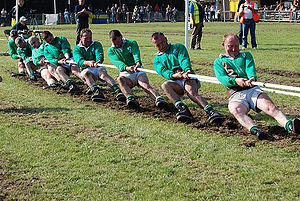
Like primary politics, but less messy
The American political system at the presidential level is two headed: there is a primary election and a general election. The standard canard is that this creates more extreme candidates. The thinking goes that the primaries are voted on by stalwarts, hard-liners in each party, and this tends to create more extreme candidates that then have to moderate their positions in the general election.
I don’t disagree with this line of thinking, but I found myself wondering WHY we ended up with such moderates in the last few election cycles as John McCain, John Kerry, Mitt Romney (he WAS a moderate in 2008, remember) and Barack Obama (he IS a moderate, moreso than a Barney Frank or a Kirsten Gillibrand). If the idea that we get extreme nominees from the primary system is true, wouldn’t that have given us more fire breathing candidates than the ones we’ve had?
To be sure, in Congress the primaries give some real foot soldiers for both parties, but at the presidential level we’ve gotten, well, Romney and Kerry. I have a theory: the trait that gets you out of the primaries at the presidential level is perceived electability rather than by substantive agreement with policies or personality.
Perceived electability is the nebulous factor that causes people to say “I don’t like him/her, but he/she is better than Bush/Obama.” The candidate that seems most mushily in the middle tends to get the nomination in the last few elections. Even Obama, who some called “the most liberal senator” was considered electable compared to Hilary Clinton. As experienced and formidable as Clinton was, she carried large negatives that made a lot of Democrats that agreed with her in substance shrink away from the thought of defending her the general. The perception of electability is why Kerry beat liberal screamer Howard Dean, why McCain beat a pile of more conservative candidates, and why Romney emerged victorious over <shudder> Rick Santorum; the other guys were thought to have less of a chance than the eventual victors.
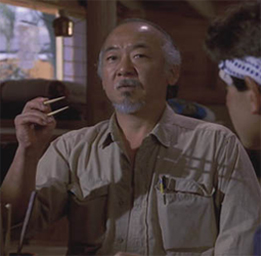
Walk left side, safe; walk right side, safe. Walk middle, get squish just like grape.
This raises the question: thought by whom? The answer is, of course, primary voters (influenced by media, endorsements, etc.). Primary voters have been voting against candidates they may have preferred in order to vote for “moderate” candidates they dislike that they think the other side may find more palatable. “Mitt Romney is the dog with the least fleas.” It is the election equivalent of dating someone your parents like instead of the person you yourself like; sure, you’d prefer someone else, but at least this person won’t be as bad as having no date.
Back to the cave fish: maybe we’ve unmoored the need have a candidate who has substance that we like from the need to have a candidate that is electable, maybe we care about vision less than beating the other party. Perhaps perceived electability is what parties choose (Romney, Kerry) over candidates that have concrete proposals that are then open to criticism. Maybe we occasional choose blind salamanders precisely because they have less of a record of leadership.
The blind salamanders and the electorate have one thing in common: neither can see Romney’s tax returns.





